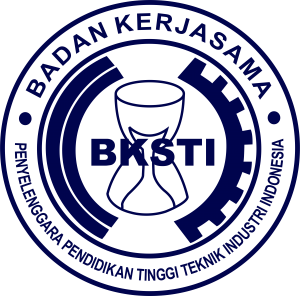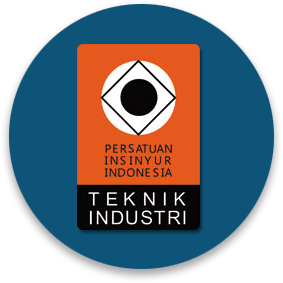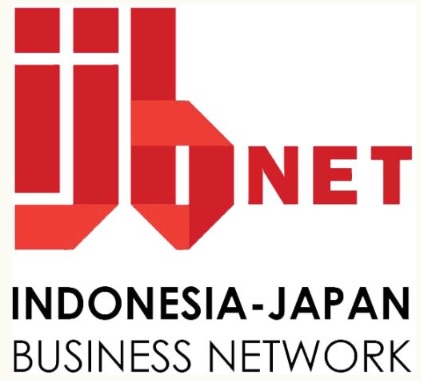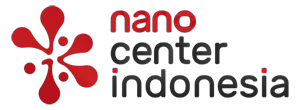The Effect of Lean Green Management System and Waste Reduction Technique on Lean Green Business Results in the Automotive Manufacturing Industry
Abstract
There was rapid growth in the automotive manufacturing industry as evidenced by the current increasing number of different variations of vehicles in society. This advancement requires industry players to compete effectively by optimizing their performance to achieve production capacity and gain adequate market share. This study aims to map and describe the current conditions of Lean Green Management System (LGMS) and Lean Green Waste Reduction Technique (LGWRT) implementation in the automotive manufacturing industry in Indonesia as well as to find the best model for implementing TPM and LGMS.Lean Green Management System (LGMS) and Lean Green Waste Reduction Technique (LGWRT) are the concepts associated with streamlining the activities usually conducted by companies in the manufacturing and service sectors. Therefore, this research focuses on evaluating the influence of implementing these concepts on the Lean Green Business Results of the automotive manufacturing industry. This was achieved through a multivariate statistical analysis applied to explain the harmonious continuity between the indicator and latent variables directly observed using SEM-PLS. The results showed that the application of LGMS and LGWRT has a significant and positive effect on Lean Green Business Results (LGBR) with 97.5% while the remaining 2,5% was linked to other variables. This means LGBR has been fully accepted
Keywords
Full Text:
PDFReferences
Antony J., Laureani (2019). Leadership and Lean Six Sigma: a systematic literature review. Total Qual Manag Bus Excell. 30(1):53-81.
Duarte S., Cabrita, R., and Machado, V. C. 2011. Exploring Lean and Green Supply Chain Performance Using Balanced Scorecard Perspective.
Ghozali, & Imam. (2015). Partial Least Square, Konsep Teknik dan Aplikasi Menggunakan Program Smart-PLS 3.0: Semarang: Badan Penerbit Universitas Diponegoro.
Ghozali, I. (2012). Aplikasi Analisis Multivariate dengan Program IBM SPSS 20. Semarang: Badan Penerbit – Universitas Diponegoro.
Ghazali, G. (2006). Structural Equation Modeling: Metode Alternatif dengan Partial Least Square. Semarang: Badan Penerbit Universitas Diponegoro.
Hair Jr, J. F., Hult, G. T. M., Ringle, C., & Sarstedt, M. (2019). A primer on partial least squares structural equation modeling (PLS-SEM). Sage Publications. Https://www.gaikindo.or.id/menperin-tumbuh-1782-persen-industri-otomotif-menyerap-banyak-tenaga-kerja/.
Lucila M. S. Campos Diego A. And Vazquez-Brust. 2016. Lean and Green Synergies in Supply Chain Management. Supply Chain Management: An International Journal, Vol. 21 Iss 5. Emerald Group.
Ioppolo, G.; Cucurachi, S.; Salomone, R.; Saija, G.; Ciraolo, L. Industrial ecology and environmentallean management: Lights and shadows. Sustainability 2014, 6, 6362–6376.
Krisnanto, A. B. 2017. Green Strategic Management Untuk Keunggulan Bersaing Berkelanjutan.INOBIS: Jurnal Inovasi Bisnis dan Manajemen Indonesia 1 (1), 1-10.
Zainal, Veithzal Rivai S. 2015. Manajemen Sumber Daya Manusia Untuk Perusahaan. Edisike-7.Depok: PT RAJAGRAFINDO.
DOI: http://dx.doi.org/10.22441/MBCIE.2023.030
Refbacks
- There are currently no refbacks.
Copyright (c) 2023 Proceeding Mercu Buana Conference on Industrial Engineering

This work is licensed under a Creative Commons Attribution-ShareAlike 4.0 International License.
Journal ISSN:
| e-ISSN | |
| 2988-4284 |
Tim Editorial Office
Proceeding Mercu Buana Conference on Industrial Engineering
Program Studi Magister Teknik Industri Universitas Mercu Buana
Jl. Raya Meruya Selatan No. 1 Kembangan Jakarta Barat
Email: [[email protected]]
Website: https://publikasi.mercubuana.ac.id/index.php/mbcie/
The Journal is Indexed and Journal List Title by:
in Collaboration with:








